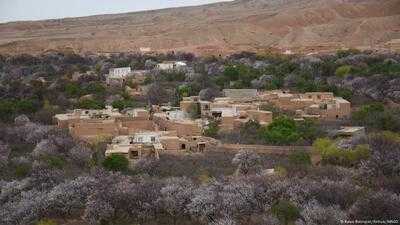

A powerful earthquake has struck northern Afghanistan near Mazar-i-Sharif, raising fears of "significant" casualties. The tremor comes two months after thousands of people died in deadly quakes in the country's east.A powerful mangitude-6.3 earthquake has rocked northern Afghanistan, the US Geological Survey (USGS) has said. The earthquake struck early Monday at a depth of 28 kilometers (17 miles) some 22 kilometers from Kholm, near Mazar-i-Sharif, according to the USGS. Kholm is home to around 65,000 people, while about 523,000 live in Mazar-i-Sharif, Afghanistan's fifth-largest city. What else do we know about the earthquake? In Mazar-i-Sharif, many people ran into the street in the middle of the night, fearing their homes might collapse, a correspondent for French news agency AFP reported. The extent of any casualties or damage is was not immediately unclear. Afghanistan's national disaster management agency said on X that information would be shared later. USGS has issued an orange alert on its automated PAGER system, which means "significant casualties are likely and the disaster is potentially widespread." Monday's earthquake comes just two months after a magnitude-6.0 quake struck in Afghanistan's east, killing more than 2,200 people. Why is Afghanistan so prone to earthquakes? Earthquakes are common in Afghanistan, particularly along the Hindu Kush mountain range, near where the Eurasian and Indian tectonic plates meet. They kill about 560 people in Afghanistan on average each year, according to Reuters news agency, and cause annual damages estimated at $80 million (€69 million). Studies indicate at least 355 earthquakes with a magnitude higher than 5.0 have hit Afghanistan since 1990. In addition, many modest Afghan homes are built of mud bricks. This makes them susceptible to earthquake damage. Poor infrastructure connecting remote regions also hampers rescue efforts after natural disasters like earthquakes. Afghanistan is already facing multiple crises including a severe drought and the return of millions of Afghans from neighbouring countries, the UN's refugee agency, UNHCR, said in an September report. Edited by: Karl Sexton